
Car accidents are undeniably stressful, disorienting, and overwhelming experiences. In the immediate aftermath of a crash, it’s incredibly easy to make decisions that might seem harmless at the time, but could actually carry serious consequences for your health, finances, and legal rights down the line. The chaos and confusion can often lead us down paths of missteps, jeopardizing our ability to seek proper compensation or protect ourselves effectively.
When law enforcement arrives at the scene, your interaction with them is a critical juncture. What you say—or don’t say—can profoundly impact the official record, insurance claims, and any potential legal proceedings. Knowing precisely how to communicate, what information to provide, and, crucially, what mistakes to avoid, is a powerful “life hack” that empowers you to navigate this challenging situation with confidence and clarity.
This in-depth guide is designed to empower you with immediate, usable advice and strategies, breaking down complex topics into easy-to-understand points. We’ll explore the 12 worst mistakes people commonly make when talking to the police after an accident, offering concrete solutions to common challenges. By understanding these pitfalls, you can protect your rights, strengthen any future claims, and ensure your recovery isn’t hampered by avoidable errors.
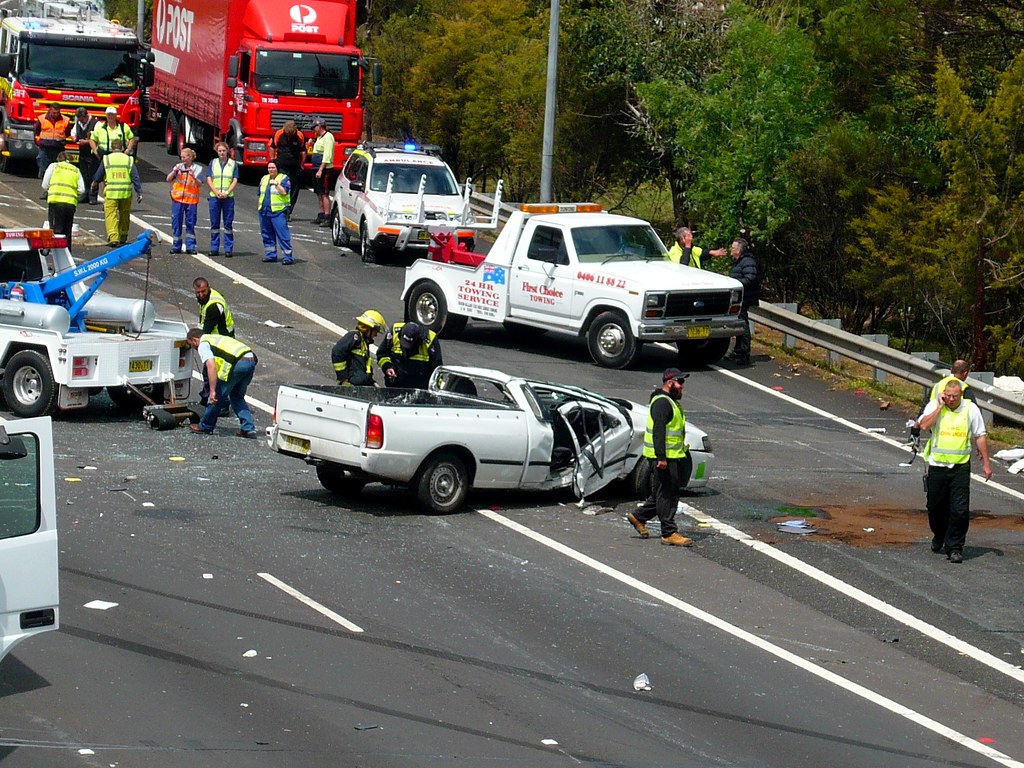
1. **Not Calling the Police**One of the most foundational mistakes you can make after an accident, even if it appears minor, is failing to contact law enforcement. You might feel tempted to resolve the situation informally, especially if the damage doesn’t seem significant at first glance. However, this oversight can create substantial hurdles for you down the road.
An official police report stands as one of the most critical pieces of evidence you will need, whether you are filing an insurance claim or contemplating a personal injury lawsuit. Police officers are trained to assess the scene, document the accident, and gather statements from all involved parties. This results in an objective, third-party account of what transpired, which is invaluable.
This official documentation provides crucial support for your claim and significantly aids in determining fault. Without it, you could easily find yourself in a challenging “he said, she said” scenario, where proving your case and recovering rightful compensation for damages becomes much more arduous. Insurance companies, in particular, may even deny claims if there’s no corresponding police report to substantiate the incident.
It is always wise to contact law enforcement after an accident, and in many places, it’s legally required under certain conditions, such as when injuries are present. Therefore, regardless of how minor the collision may seem at the moment, always request that a police officer comes to the scene, and be sure to obtain a copy of the official accident report once it’s filed. This simple action can safeguard your interests.
Read more about: From ‘Little Hercules’ to Quiet Contentment: The Unseen Journey of Richard Sandrak
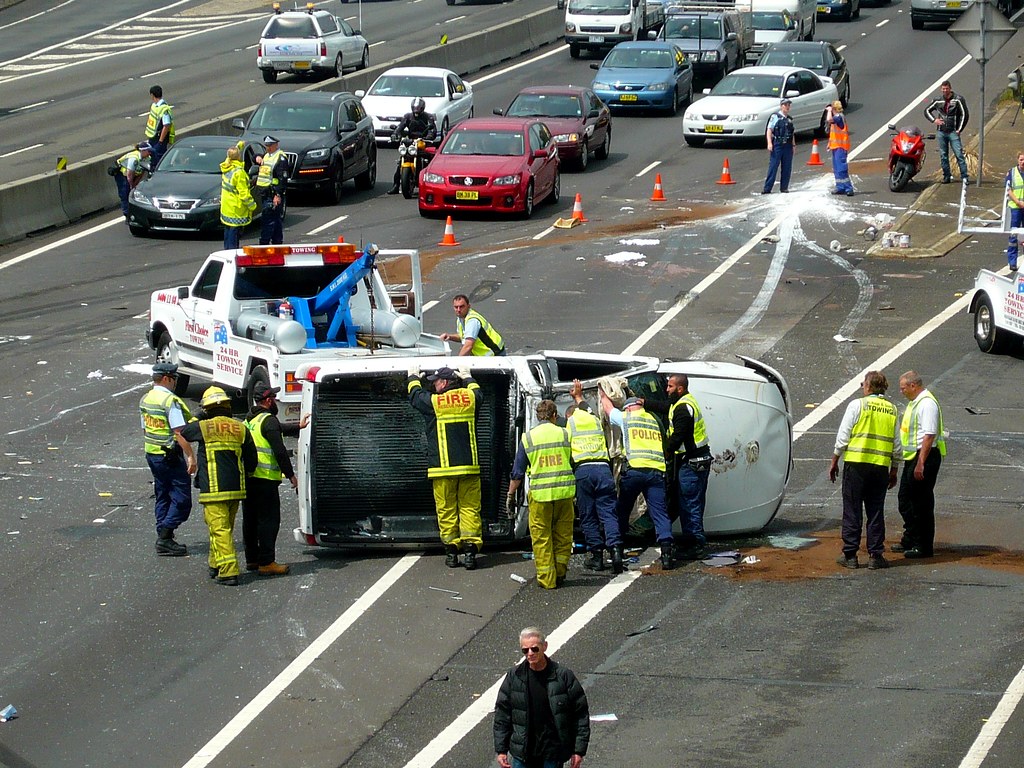
2. **Leaving the Scene Without Permission**After contacting law enforcement and especially once officers have arrived at the scene, it is absolutely paramount that you remain present until explicitly told otherwise. This might seem like an obvious point, but in the heat of the moment, with emotions running high and a desire to simply move past the ordeal, many individuals make the critical mistake of leaving too soon.
The scene of an accident falls under the jurisdiction of the responding police officers, who are tasked with a comprehensive investigation. They need to collect all pertinent information, ensure the safety of everyone involved, and often direct traffic or manage other logistical challenges. Your presence is usually required until they have completed their initial assessment and gathered all the necessary details for their official report.
Never assume that once basic information has been exchanged or a few questions have been answered, you are free to depart. Doing so without an official go-ahead from law enforcement can be viewed as uncooperative behavior, potentially leading to further complications or even legal issues. It could suggest that you are attempting to avoid accountability or that you have something to hide, even if that is far from your intention.
By patiently waiting for an officer’s official directive to leave, you demonstrate full cooperation and respect for the legal process. This small act of compliance helps ensure that all details are logged correctly and that the officers have everything they need for an accurate report, protecting your own position and avoiding any unnecessary misunderstandings. Always confirm it is okay to leave before you do.
Read more about: Unpacking the AI Revolution: 15 Must-Know Facts About ChatGPT’s Evolution and Impact
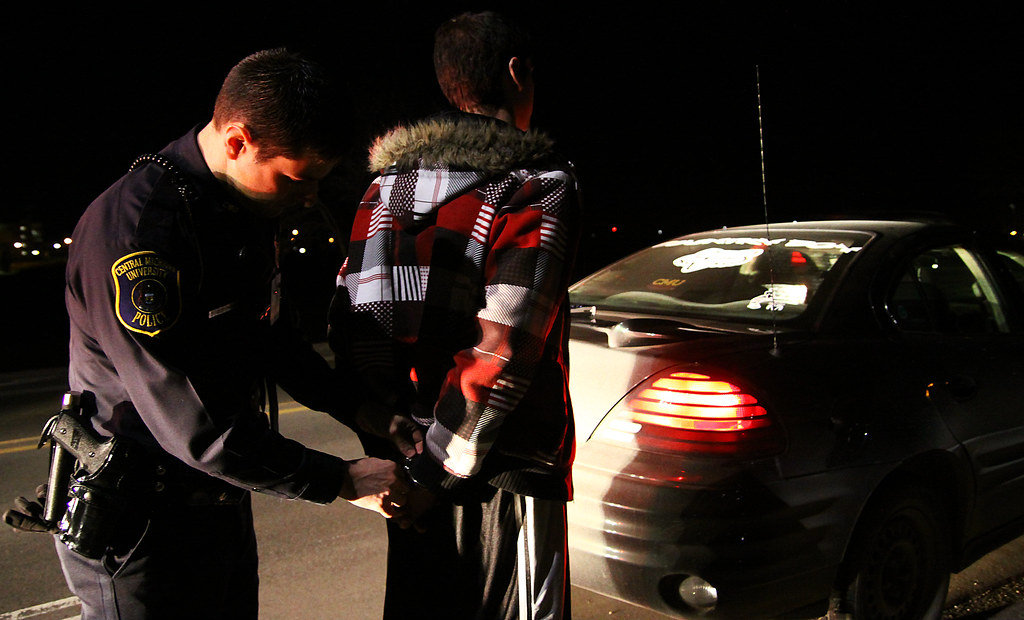
3. **Avoiding or Resisting Law Enforcement**In the aftermath of an accident, it’s natural to feel overwhelmed or anxious, possibly even wishing the police weren’t involved. However, actively avoiding or resisting law enforcement officers is a serious mistake that can escalate an already stressful situation into one with severe consequences. Your cooperation is not just a courtesy; it’s often a legal requirement.
If police officers wish to speak with you or instruct you to remain at the scene for a longer duration, it is absolutely essential to comply with their directions. Resisting or attempting to avoid an officer’s instructions can quickly lead to additional complications that are far more problematic than the accident itself. Such actions can easily be perceived as suspicious behavior, casting a negative light on your involvement.
The officers are at the scene to gather facts, secure the area, and facilitate an official report. By refusing to cooperate, you not only hinder their ability to perform these duties but also potentially create legal issues for yourself, such as charges for obstructing an investigation. This can severely undermine any legitimate claims you might have and complicate your ability to recover compensation later on.
Therefore, always strive to answer their questions politely and accurately, sticking strictly to the facts. Follow any instructions they provide you at the scene without argument or delay. Maintaining a calm and respectful demeanor, even if you’re feeling agitated, is crucial for expediting the process and ensuring your rights are protected throughout the interaction.
Read more about: You Won’t Believe How Much These 11 Celebrities Paid for Driving Under the Influence (and More!)

4. **Admitting Fault or Apologizing**This is perhaps the most frequently highlighted pitfall after a car accident: never, under any circumstances, admit fault or apologize at the scene. It’s an instinctive reaction for many people, especially in moments of shock or distress, to say “I’m sorry” or to even express thoughts like “I think it was my fault.” However, these seemingly innocuous phrases can have severe, long-term repercussions.
Even if you initially believe you might be responsible for the collision, you simply do not possess all the details immediately following the event. There could be numerous contributing factors you are unaware of, from road conditions to the actions or inactions of other drivers, or even unforeseen mechanical failures. Prematurely taking the blame can create an uphill battle, making it incredibly difficult to retract such an admission later, even if subsequent evidence proves otherwise.
Insurance companies are particularly adept at using admissions of fault against you. They can interpret your apologies or self-incriminating statements as concrete evidence of guilt, which can jeopardize your insurance claim and significantly reduce any compensation you might be entitled to receive. The determination of liability should always rest on a thorough investigation and the objective evidence collected, not on personal opinions expressed in the heat of the moment.
In many jurisdictions, including states like Georgia, being found even partially at fault can directly impact your ability to recover damages, potentially reducing your compensation or even barring it entirely if your fault exceeds a certain percentage. Therefore, when speaking with the police, stick strictly to the facts, answer questions briefly, and let the professionals involved—law enforcement, your attorney, and insurance investigators—determine who is truly at fault based on a comprehensive review of all evidence.
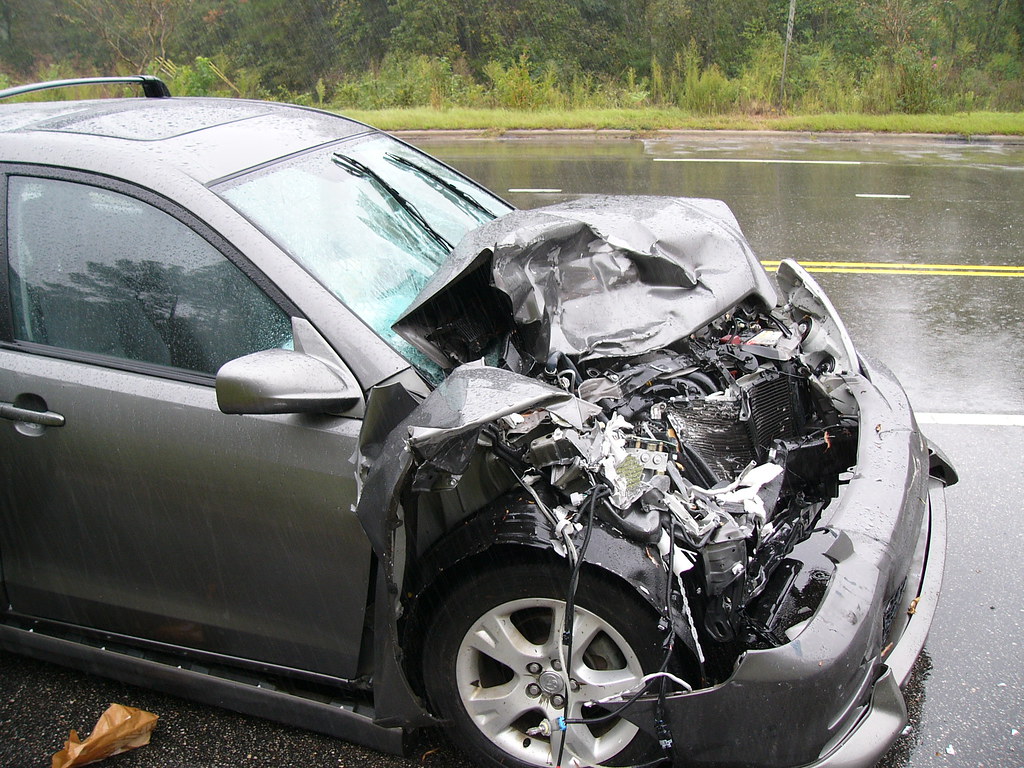
5. **Speaking Negatively About Anyone Else**The aftermath of an accident is an incredibly stressful time, often leaving you feeling frightened, angry, confused, or even in pain. In such heightened emotional states, it’s remarkably easy to lose your composure and lash out or point fingers at others involved. However, allowing these frustrations to manifest in negative comments about anyone at the scene is a significant mistake.
You should always refrain from insulting, criticizing, or speaking negatively about any individual present. This includes, but is not limited to, other drivers, passengers, any witnesses who may have observed the incident, and even the responding police officers themselves. Such behavior does not serve your interests and can actively work against you during the official reporting process.
Negative remarks or accusations can create an atmosphere of hostility, making the police officer’s job more difficult and potentially influencing how they perceive your credibility. These comments can also be recorded in the official report or by witnesses, and later used to portray you in an unfavorable light, potentially undermining any claims you might pursue.
No matter how frustrating or unfair the situation may seem, it is crucial to remain polite and calm. Focus on providing factual information when asked, and avoid expressing anger or blame. Maintaining a composed and respectful demeanor helps expedite the process, ensures that all details are logged correctly without emotional bias, and ultimately protects your standing throughout the investigation.
Read more about: 14 Stars Who Got The Boot: Unpacking Hollywood’s Most Shocking Mid-Production Firings
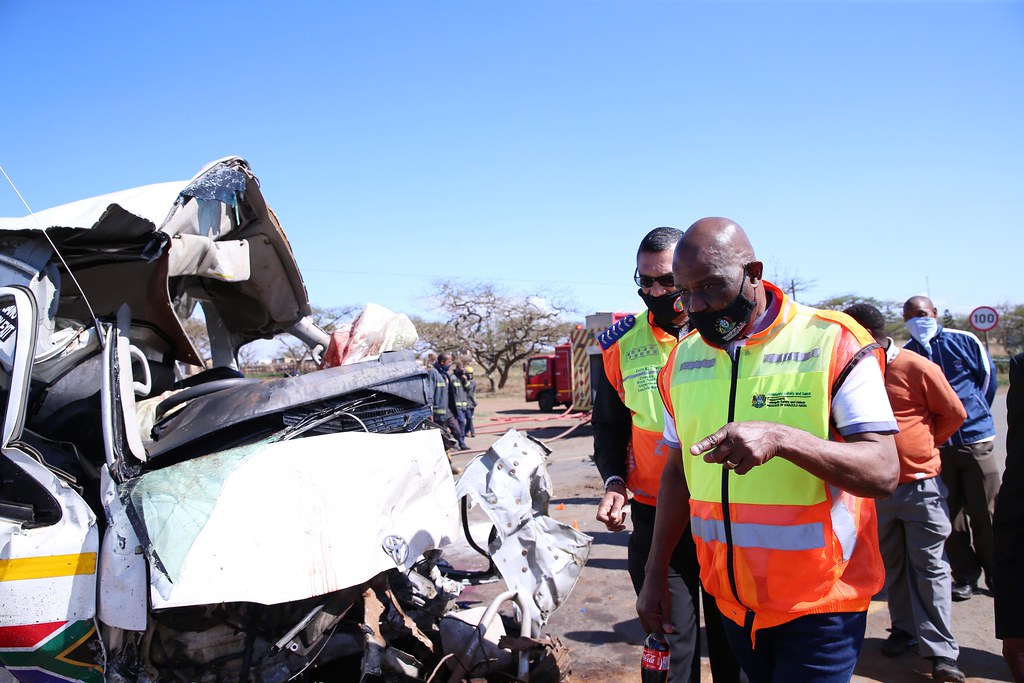
6. **Volunteering Unnecessary Information**When interacting with law enforcement after an accident, a general rule of thumb to live by is: the less you say beyond the basic required facts, the better. While it’s important to be cooperative and answer direct questions, volunteering additional, unsolicited information can be a significant misstep that inadvertently harms your position.
Officers are at the scene to gather the essential facts needed for their report. Your role is to provide these facts clearly and concisely. There is no requirement, nor is it beneficial, to share every minute detail or elaborate extensively on circumstances not directly asked about. Over-sharing can easily introduce ambiguities, inconsistencies, or even speculative statements that could later be used to discredit your account or complicate the investigation.
Furthermore, avoid the temptation to offer your personal opinions or elaborate on your perception of how the accident occurred, especially regarding who was at fault. While these thoughts might be racing through your mind, articulating them to the police can be detrimental. Officers are trained to collect objective facts, and your subjective interpretations or assumptions can muddy the waters.
Stick strictly to providing your basic information—name, address, driver’s license, registration, insurance information, and license plate number—when requested. When asked what happened, answer briefly and factually. If you can respond with a simple “yes” or “no,” that is often sufficient. Remember, your objective is to assist in the accurate documentation of the event, not to conduct your own full-scale recounting or provide a narrative beyond what is absolutely necessary for the official record.
Read more about: 15 Common Myths About World War II That Historians Have Resoundingly Debunked
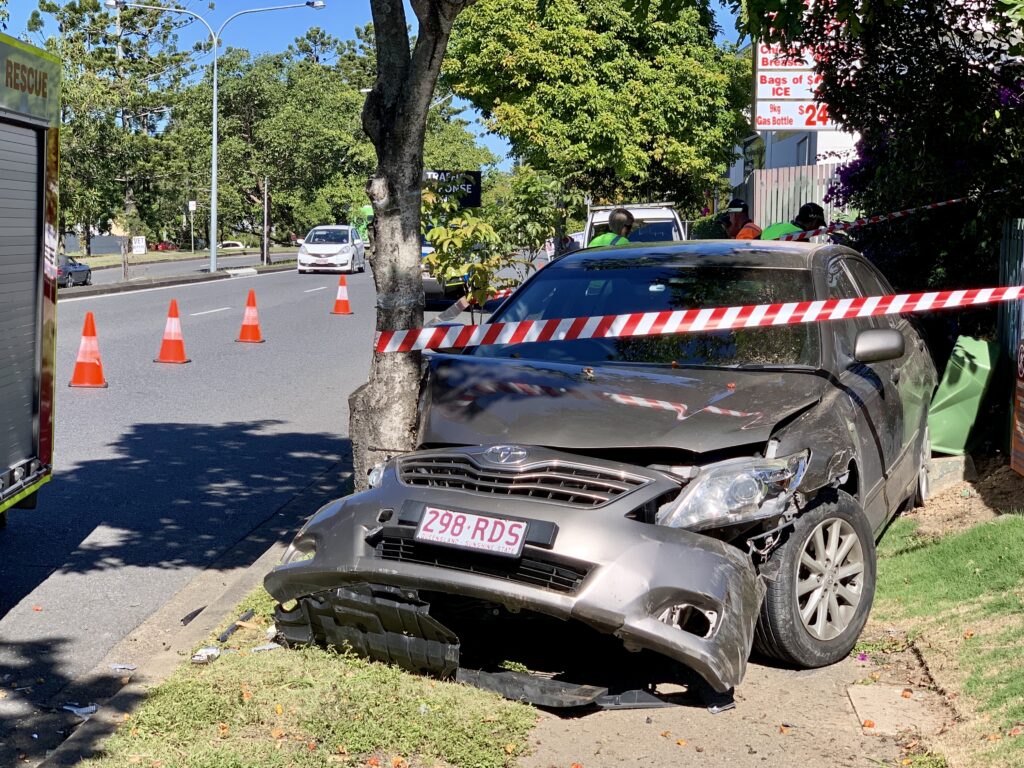
7. **Discussing Personal Topics**In the tense moments following an accident, it’s easy to want to engage in friendly conversation or distraction. However, a significant misstep is allowing yourself to be drawn into discussing anything not directly related to the accident with responding officers or even witnesses. While seemingly harmless, this kind of friendly chit-chat can quickly lead to inadvertently saying something you might later regret, impacting your case.
Officers are focused on gathering the facts about the incident itself. Any tangents into your personal life, daily routine, or even unrelated stressors can create an opening for misinterpretation. What you consider an innocent comment, an insurance adjuster or opposing counsel might later twist to paint a different picture of your state of mind, credibility, or even your injuries. It’s crucial to understand that even casual remarks can be recorded or recalled by others, potentially impacting the official narrative.
This is a scenario where politeness meets self-preservation. You can be respectful and cooperative without divulging unnecessary personal details. If a conversation veers into non-accident-related territory, you should politely but firmly steer it back to the core facts of the incident. There is no obligation to disclose intimate details about your life to anyone at the scene.
Ultimately, your objective is to assist in the accurate documentation of the event, ensuring your rights are protected without providing any extraneous details that could create unforeseen complications down the line. Keep your conversations focused solely on the basic information and direct facts of the accident, making it clear that your focus is on the incident at hand.
Read more about: The 13 Indispensable Habits Top Coaches Cultivate to Master Professional Excellence

8. **Guessing or Speculating**When police officers ask you questions about the accident, it’s crucial to understand that they are looking for factual information. A common mistake people make is to guess or speculate if they are unsure of an answer, rather than simply stating they don’t know or can’t recall. The disorienting nature of an accident can understandably cloud your memory, making it perfectly reasonable not to remember every detail.
Speculating about how the accident occurred, who was at fault, or the extent of damages can introduce inconsistencies into your statement. These inconsistencies, even if born from a desire to be helpful or a confused memory, can later be used to discredit your entire story. This can seriously weaken your position during insurance claims or any legal proceedings.
If you genuinely don’t know the answer to a question, it’s always best to respond with a clear, concise “I don’t know” or “I can’t recall.” There is no need to invent details or fill in blanks with assumptions. Stick rigorously to what you factually observed and remember, avoiding any embellishment or conjecture. This clarity protects your narrative and maintains your credibility.
Remember, your honesty about your memory limitations is far more valuable than providing inaccurate or speculative information. It ensures that the official record reflects only verifiable facts, which is paramount for protecting your rights and strengthening your case. This practical approach prevents unnecessary complications and ensures that the investigation proceeds on solid ground.
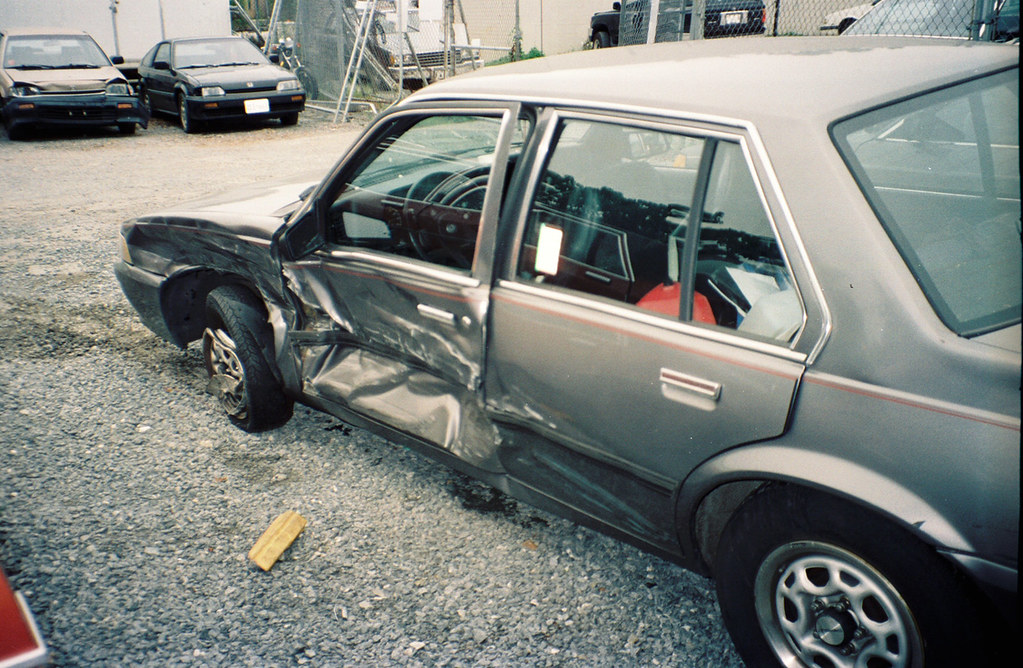
9. **Stating You Have No Injuries**In the immediate aftermath of a car accident, the adrenaline surge can mask pain and the full extent of injuries. It’s a grave mistake to tell anyone at the scene, including police or other drivers, that you are “fine” or “not hurt.” While you might genuinely feel okay at that moment, many serious injuries, such as whiplash, concussions, or internal soft tissue damage, do not manifest symptoms immediately, and can worsen over time.
By prematurely stating you have no injuries, you create a documented declaration that can be severely detrimental to any future injury claim. Insurance companies, especially, are adept at using such statements against victims. If symptoms emerge days or weeks later, they might argue that your injuries are unrelated to the accident, as you initially claimed to be unharmed, making your battle for compensation much harder.
Even if a police officer asks about your condition, it is prudent to say something like, “I’m feeling shaken, but I haven’t been medically evaluated yet,” or “I’m not sure if I’m injured; I’ll be seeking medical attention immediately.” This approach avoids making a definitive statement about your health that could be contradicted by later medical findings, safeguarding your right to seek compensation for delayed or hidden injuries. It ensures that your perceived condition at the scene doesn’t preclude you from rightful medical care and legal recourse.
Protecting your health and your legal rights means deferring any assessment of injuries to medical professionals. Never make an on-the-spot judgment about your physical state, as this seemingly small remark can have far-reaching and negative consequences for your well-being and any potential personal injury claim. Your priority should be getting a professional medical assessment, not offering quick assurances that might backfire.
Read more about: Mastering the Fundamentals: 10 Essential Business Principles for Aspiring Entrepreneurs and Established Leaders
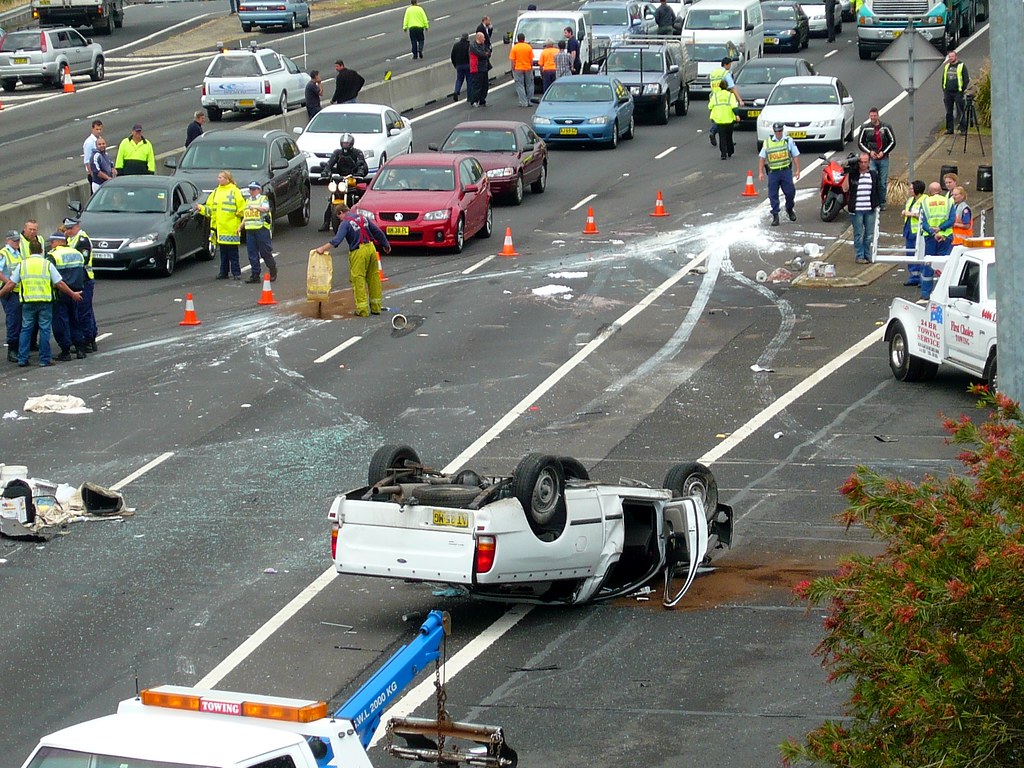
10. **Failing to Document the Scene**While police officers are responsible for documenting the accident scene, relying solely on their report without taking your own initiative can be a critical mistake. In the chaos of an accident, it’s easy to get flustered and overlook the importance of gathering your own evidence. Failing to document the scene thoroughly can cost you valuable information that helps establish the cause of the crash, property damage, injuries, and crucial road conditions.
Your smartphone is an incredibly powerful tool for documentation. You should use it to take numerous photos and videos of everything relevant to the accident. This includes detailed shots of all vehicles involved from various angles, visible injuries sustained by anyone in your vehicle, skid marks on the road, traffic signs or signals, and any environmental hazards like debris or weather conditions. These visual records provide undeniable proof of the scene’s state immediately after the impact.
Gathering contact information from all drivers involved—names, phone numbers, addresses, and insurance details—is also paramount. Moreover, if there are any bystanders who witnessed the incident, identify them and ask for their contact information. These third-party accounts can be invaluable for police and your attorney, helping to corroborate your story and ensure the official report is accurate and comprehensive.
Detailed documentation protects you if the other party’s story changes or if there are discrepancies in the official report. It serves as concrete evidence, strengthening your claim and empowering your attorney to build a robust case on your behalf. Don’t leave this critical step solely to others; take charge of your own evidence collection.
Read more about: Buyer’s Remorse on Wheels: 6 Sedans Owners Wish They Could Erase from Their Driveways
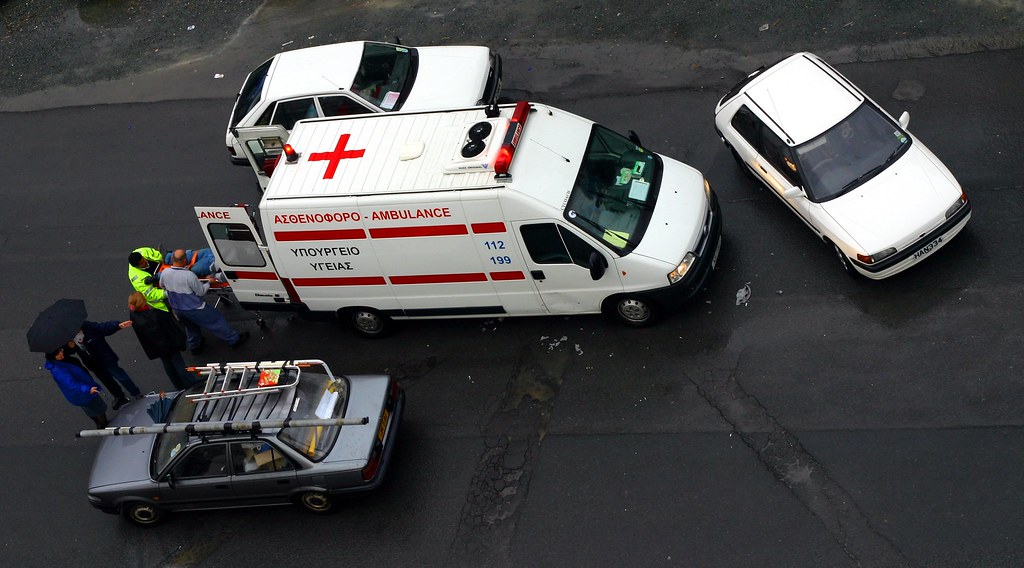
11. **Delaying Medical Attention**One of the most common and damaging mistakes people make after an accident is delaying or neglecting to seek medical attention immediately. The thought process might be, “I feel okay,” or “My injuries seem minor,” but this assumption can be gravely mistaken. Many serious injuries, particularly soft tissue damage like whiplash, internal bleeding, or concussions, can have delayed symptoms, appearing hours or even days after the initial impact.
When you delay seeking medical care, you create a significant hurdle for your personal injury claim. Insurance companies are quick to argue that if you waited to see a doctor, your injuries must not have been serious, or worse, that they are unrelated to the accident. This gap in medical care provides them with an easy excuse to devalue or even deny your claim entirely, potentially leaving you with mounting medical bills and no recourse.
Visiting an emergency room, urgent care facility, or your primary care physician as soon as possible after an accident, even if you feel fine, is absolutely crucial. Medical documentation created immediately after the crash establishes a direct and undeniable link between the accident and your injuries. Early treatment can also prevent minor injuries from worsening into chronic conditions, protecting your long-term health and strengthening your claim.
This isn’t just about protecting your legal rights; it’s about protecting your health. Prompt medical evaluation ensures that any hidden injuries are diagnosed and treated early, leading to a better recovery outcome. Make medical attention your top priority after ensuring scene safety and police notification, as this immediate action can make all the difference in your physical and financial well-being.
Read more about: Unmasking the Saboteurs of Your Sleep: 15 Critical Routine Flaws Derailing Your Recovery Journey
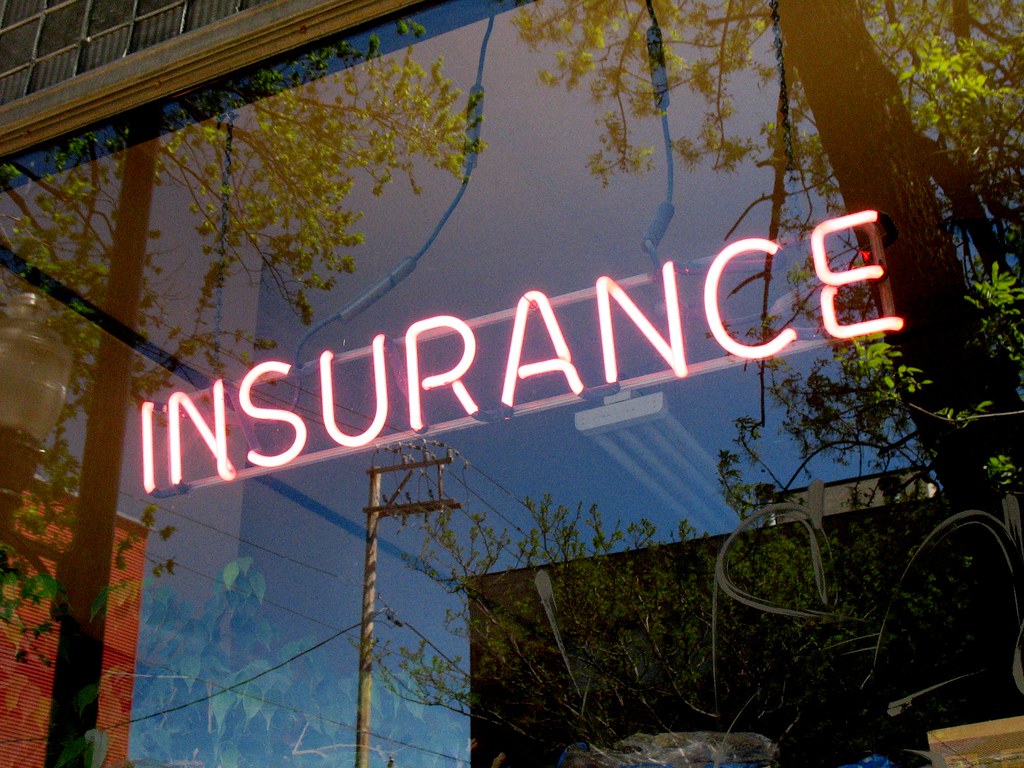
12. **Engaging with Insurance Without Legal Counsel**After an accident, it won’t be long before insurance adjusters, both from your company and the other party’s, start making contact. A major mistake is engaging in detailed conversations, providing recorded statements, or accepting settlement offers without first consulting with an experienced personal injury attorney. It’s important to remember that while adjusters may seem friendly, their primary goal is to minimize payouts and close claims quickly and for as little money as possible.
Insurance companies are profit-driven entities, and their adjusters are expertly trained to elicit information that can be used against you. They may ask leading questions, push for recorded statements that lock you into a narrative before you fully understand your situation, or offer a quick, lowball settlement. Accepting an early offer can mean waiving your right to pursue full compensation later, especially if the true extent of your injuries or damages isn’t yet known, leaving you with unaddressed future expenses.
Your insurance policy generally requires you to notify your insurer of an accident, but this obligation does not extend to providing detailed accounts or recorded statements without legal guidance. Politely inform any adjuster that you will be speaking with your attorney before discussing the specifics of the accident, your injuries, or any settlement offers. This simple step puts your lawyer in control of communications, shielding you from tactics designed to undermine your claim.
Furthermore, remember that quick settlement offers by insurance companies often don’t reflect the true value of your case. In the days after an accident, you don’t yet know the full extent of your injuries or how they will affect your daily life and future ability to earn wages. Accepting such an offer can severely disadvantage you, as you cannot go back to demand more money once a settlement is accepted, even if new injuries or disabilities emerge.
Consulting an attorney before interacting extensively with insurance companies empowers you with knowledge and a strong advocate. Your lawyer can handle all communications, ensure you don’t inadvertently jeopardize your claim, negotiate on your behalf, and fight for the fair compensation you truly deserve for your losses. This “life hack” protects your financial future and ensures you receive the full benefit of your rights, allowing you to focus on healing and recovery.
Read more about: Mastering Car Title Security: 13 Essential Strategies to Safeguard Your Vehicle and Finances from Deceptive Scams
Navigating the aftermath of a car accident is undoubtedly one of life’s more challenging experiences, filled with potential pitfalls that can transform a stressful incident into a long-term legal and financial nightmare. However, by understanding these common mistakes and arming yourself with proactive, practical strategies, you can emerge from the chaos with your rights protected and your path to recovery significantly clearer. It’s about empowering yourself with knowledge, making informed choices, and understanding that every interaction, every piece of documentation, and every decision you make in the wake of a crash holds weight. Don’t let fear or confusion dictate your actions; instead, choose clarity, caution, and informed action to safeguard your future.



